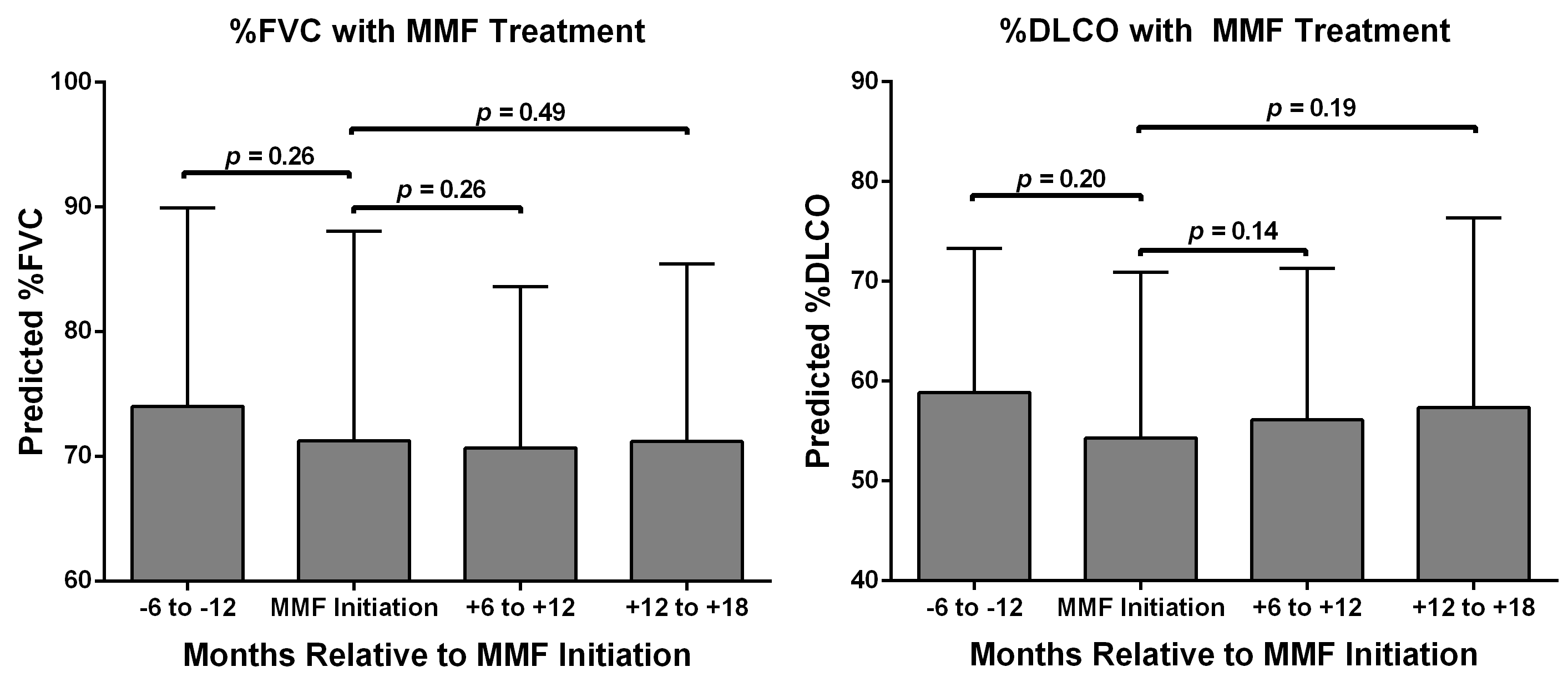Session Information
Session Type: Abstract Submissions (ACR)
Background/Purpose: Interstitial lung disease remains a primary driver of morbidity and mortality in patients suffering from systemic sclerosis. Cyclophosphamide currently is the treatment with the most data and experience; however, toxicity and poor tolerance often limit its clinically modest usefulness. Mycophenolate mofetil (MMF) has received growing interest as an alternative agent. In this study, effects of MMF on pulmonary lung function in systemic sclerosis-associated interstitial lung disease were examined.
Methods: Twenty patient cases were retrospectively reviewed having met the American College of Rheumatology’s criteria for systemic sclerosis. Interstitial lung disease was defined and characterized by high-resolution chest tomography. Cases were included if treatment was greater than 1 gram per day dosing of MMF for at least 6 months. Pulmonary function test results were collected prior to and following treatment initiation at 6 month intervals for a total 30-month monitoring time span.
Results: Six-to-twelve months prior to MMF initiation, mean predicted forced vital capacity (%FVC) was 74% ± 15.9% (mean ± SD) and declined to 71.3% ± 16.8% at treatment baseline. Following MMF initiation, the mean %FVC remained stable at 70.7% ± 12.9% and 71.2% ± 14.2% at the 6-to-12 and 12-to-18 month follow-up interval period, respectively. Mean rate of change in %FVC or %FVC velocity was -0.25% ± 0.93% per month prior to MMF treatment. Following MMF treatment, rates of decline reversed and %FVC velocity was +0.18% ± 0.62% per month at the 6-to-12 month follow-up interval – a statistically significant improvement (p=0.005). Mean predicted diffusion capacity of carbon monoxide (%DLCO) was 54.3% ± 14.4% prior to treatment. After MMF treatment, %DLCO improved to 56.1% ± 15.2% by the 6-to-12 month follow-up interval and to 57.4% ± 19.0% by the 12-to-18 month follow-up interval. These results are summarized in Figure 1 below.
Figure 1
Conclusion: We report trends of stability with %FVC and trends of improvement with %DLCO over an 18-month period following MMF treatment. Our findings suggest mycophenolate mofetil is a promising alternative treatment for interstitial lung disease of systemic sclerosis. However, these observations were not statistically significant and further emphasize the need for a higher powered randomized clinical trial.
Disclosure:
M. Pham,
None;
W. L. Griffing,
None.
« Back to 2014 ACR/ARHP Annual Meeting
ACR Meeting Abstracts - https://acrabstracts.org/abstract/effects-of-mycophenolate-mofetil-on-pulmonary-lung-function-in-interstitial-lung-disease-of-systemic-sclerosis/

